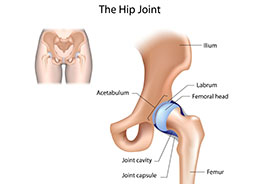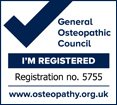Hip Pain Chelmsford

The Hip Joint
The hip is a ball and socket joint which is strong and stable as it is one of the major weightbearing joints in the body. The ball is the uppermost spherical point of the femur or thigh bone, and it sits in the socket which is the acetabulum of the ilium bone which forms one side of the pelvis. The joint is bound by a joint capsule and contains synovial fluid which lubricates the joint with synovial fluid, and the joint is lined with cartilage which enables smooth gliding of the bone surfaces on movement. It is surrounded by tendons which are the cord like structures that attach muscle to bone, and is stabilised by ligaments. As with all joints there is a blood supply and nerve innervation.
Pain Caused By Hip Problems
Pain related to the hip can be confusing. Sometimes patients refer to “hip” pain when it is around the buttocks or lateral lumbar spine. That can also be pain referred from the lumbar spine which can be misleading. Pain originating from the hip typically refers to the groin, along the front of the thigh or into the knee which can lead to a mis-diagnosis of a knee problem. Hip problems are usually worse when weightbearing such as walking, going up or down stairs and bending your leg to put socks on.
Possible Causes of Hip Pain:
- Osteoarthritis
- Other types of inflammatory arthritis, eg, rheumatoid arthritis, ankylosing spondylitis & psoriatic arthritis
- Femoroacetabular impingement
- Labral tear – tear to the ring of cartilage
- Trochanteric Bursitis – inflammation and swelling of the greater trochanteric bursa
- Iliotibial band syndrome
- Iliopsoas tendonitis
- Fracture – this will be sudden, acute pain and is typically due to osteoporosis in older patients, usually after a fall

How can osteopathy help?
At Oaklea Osteopathy in Chelmsford, experienced osteopath Amanda Miles will assess you fully by taking a detailed case history and examining you to rule out other causes of pain that may refer to the “hip” area such as lumbar pain. Treatment will depend on your diagnosis and other factors such as age, general health and fitness. Treatment is carefully chosen to reduce pain, improve mobility, improve function and improve strength.
Many hip problems respond well to gentle exercises to stretch the area and if this is appropriate for you, Amanda will provide you with an individually tailored exercise programme.
Occasionally, there may be a need to refer you back to your GP if Amanda thinks you may benefit from further investigation or tests. Amanda will always discuss this with you first if she thinks this is necessary.
Useful Links
Hip Pain
NHS Hip Pain Information






